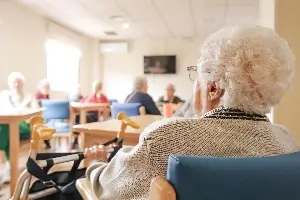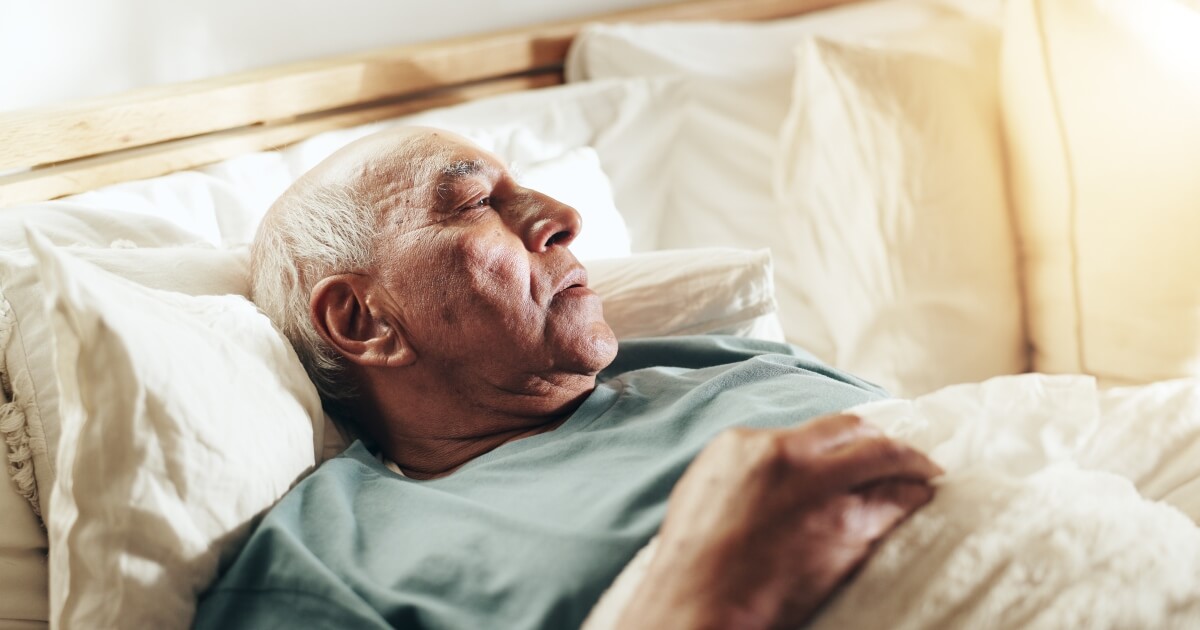
When you entrust a nursing home with the care of your loved one in Albuquerque, it goes without saying that you’re hoping they’ll provide good service. But these facilities also have a legal obligation to keep your loved one safe and well cared for according to acceptable standards. Knowing what a nursing home’s “legal duty of care” is and recognizing when they fall short can help you protect your family member from harm.
If your loved one was injured because a long-term care facility violated their legal duty of care, you may be eligible to recover compensation for medical costs, pain and suffering, and other damages.
At PKSD, we are deeply committed to advocating for victims of nursing home abuse or negligence. Call our law offices in New Mexico to discuss your situation, get answers to your questions, and find out if you have legal options in a completely free consultation. Our nursing home injury lawyers in Albuquerque have been helping residents injured by abuse or negligence for decades.
Call PKSD today. Let our family help yours. 505-677-7777
When Does a Nursing Home Owe a Legal Duty of Care?
A nursing home’s legal duty of care begins the moment a resident is admitted to the facility. This duty is established through the contractual relationship between the facility and the resident (or their family), as well as through federal and state regulations governing long-term care facilities.
In New Mexico, nursing homes must comply with both federal standards under the Nursing Home Reform Act and state-specific regulations. This duty of care is not optional—it is a legal requirement to protect residents from harm.
The duty exists regardless of how much a resident pays, their medical condition, or how “difficult” staff may perceive them to be. Every resident deserves the same standard of competent, compassionate care that prioritizes their safety, dignity, and well-being.
What Legal Responsibilities Does a Duty of Care Involve?
The duty of care encompasses a comprehensive range of responsibilities designed to protect vulnerable residents. These legal obligations include:
- Adequate Staffing Levels: Facilities are required by law to maintain adequate staffing to ensure residents receive timely attention, care, and supervision. When facilities are routinely understaff, they put residents at significant risk of suffering harm due to medication mistakes, transfer errors, and other types of negligence or abuse.
- Proper Assessment & Care Planning: An initial assessment and care plan happens once a resident is admitted to a facility. But these plans must be regularly reviewed and updated as conditions change to identify each resident’s specific needs, risks, and preferences.
- Prevention of Foreseeable Harm: Nursing homes must protect residents by implementing protocols, such as for fall prevention, infection outbreaks, and preventing pressure ulcers. Other obligations include checking qualifications and backgrounds of potential employees to safeguard against abuse.
- Medication Management: Facilities are required to make sure residents receive the right medications in correct doses at proper times, while monitoring for adverse reactions.
- Nutritional and Hydration Support: Nursing home staff must be trained to prevent malnutrition and dehydration by accommodating residents who have difficulty eating or drinking independently.
- Maintaining a Safe Environment: A nursing home should be free from hazards, have proper equipment that is regularly inspected and maintained, clean facilities, and functioning safety systems.
- Respect for Resident Rights: Residents who enter a nursing home have legal rights to being treated with dignity, retaining privacy, freedom from restraints, and the ability to voice complaints without retaliation.
How Do Nursing Homes Often Violate the Duty of Care to a Resident?
Unfortunately, many Albuquerque nursing homes fail to meet their legal obligations. Common violations include:
- Understaffing: Staffing shortages are a longterm problem at nursing homes, but they put residents in serious jeopardy. When facilities operate with too few workers to cut costs, residents suffer from delayed responses to call buttons, missed medication doses, infrequent position changes, and inadequate supervision.
- Inadequate Training: Staff members who lack the knowledge to recognize warning signs of deteriorating health or properly handle residents with dementia, mobility issues, or complex medical needs put residents at risk of suffering life-threatening harm.
- Failure to Monitor: Nursing homes have a legal obligation to monitor residents who are at known risk for falls, wandering, choking, or other preventable incidents.
- Ignoring Care Plan Requirements: When nursing homes skip providing residents with prescribed therapies, treatments, or interventions they need, it can result in serious harm.
- Poor Communication: When nursing home staff fail to properly communicate with oncoming staff at the end of a shift, it can lead to missed symptoms, medication errors, or delayed medical attention.
- Neglecting Basic Hygiene Needs: Residents who rely on nursing home staff to provide their daily hygiene needs suffer a loss of dignitiy, as well as infections and pressure sores when they are left for hours or longer in soiled clothing or bedding.
Who Is Liable When a Failed Duty of Care Leads to Nursing Home Abuse or Negligence?
Determining liability in nursing home negligence cases can involve multiple parties:
- Nursing Homes: Facilities bear primary responsibility for breaching a duty of care. Corporate owners and operators can be held accountable for systemic failures like chronic understaffing or inadequate policies.
- Individual Staff: Caregivers and other healthcare professionals may be held personally liable if their specific actions (or inactions) directly caused harm. Some examples include a nurse who ignores a resident’s call for help or an aide who uses excessive force.
- Management: Administrators and other management staff can be liable for failing to supervise staff, ignoring reported problems, or creating an environment where neglect flourishes.
- Corporate Parent Companies: Corporate companies may share liability, especially if their cost-cutting decisions compromise resident care across multiple facilities.
In New Mexico, families can pursue claims due to negligence, as well as due to violations of state and federal regulations governing nursing home operations. Multiple liable parties may mean multiple sources of compensation for your loved one’s injuries.
Common Injuries Residents Suffer When Facilities Violate a Duty of Care
When nursing homes fail in their legal duty, residents suffer serious, often preventable injuries:
Fall-Related Injuries
For the older adults, especially those suffering from other physical conditions, serious, even life-threatening injuries can result from a fall.
Hip fractures, head trauma, and broken bones are just a few common fall injuries that harm elderly residents. Fall-related injuries are often due to inadequate supervision or failure to address mobility risks.
Pressure ulcers (bedsores)
Pressures sores develop when immobile residents aren’t repositioned or turned often enough. These painful wounds can become infected and even become fatal in severe cases.
Malnutrition and Dehydration
Residents suffering from malnutrition and dehydration is all too common. These life-threatening conditions are the result of insufficient feeding assistance and lack of monitoring. The outcome is dangerous weight loss, weakness, and organ damage.
Medication Errors
Medication errors happen when staff administer the wrong medications, incorrect doses, or fully miss giving doses to residents, These errors are dangerous and can lead to adverse reactions, overdoses, or untreated medical conditions.
Infections
Improperly treated conditions, such as urinary tract infections, pneumonia, and COVID-19, often the result of poor medical care and poor sanitation, could result in severe, life-threatening infections, like sepsis.
Emotional and Psychological Harm
Residents who are purposely isolated from other residents, experience verbal abuse, or suffer the trauma of living in an environment where their needs are consistently ignored.
Wrongful Death
When a breach of duty leads to fatal injuries or medical emergencies that could have been prevented.
Do You Suspect a Nursing Home Injury in Albuquerque Due to Negligence? Call PKSD Today
At PKSD, we understand that discovering your family member has been harmed due to a nursing home’s failure to meet its duty of care is devastating. You trusted these professionals to protect someone you love, and they betrayed that trust.
New Mexico law has legal pathways for holding negligent facilities accountable and seeking compensation for medical expenses, pain and suffering, and other damages your loved one has endured. More importantly, legal action can force facilities to make necessary changes that protect current and future residents.
If you suspect a nursing home has violated its duty of care to your loved one in Albuquerque or anywhere in New Mexico, don’t wait. We’ll listen to your concerns, investigate what happened, and work tirelessly to secure the justice and get the answers your family deserves. Evidence can disappear quickly, and there are time limits for filing claims.
Worried about costs? Don’t be. We take nursing home injury cases on contingency in Albuquerque, which means no upfront costs or fees to pay. We only get paid if you do.
Contact PKSD today at 505-677-7777 for a free, confidential consultation.






